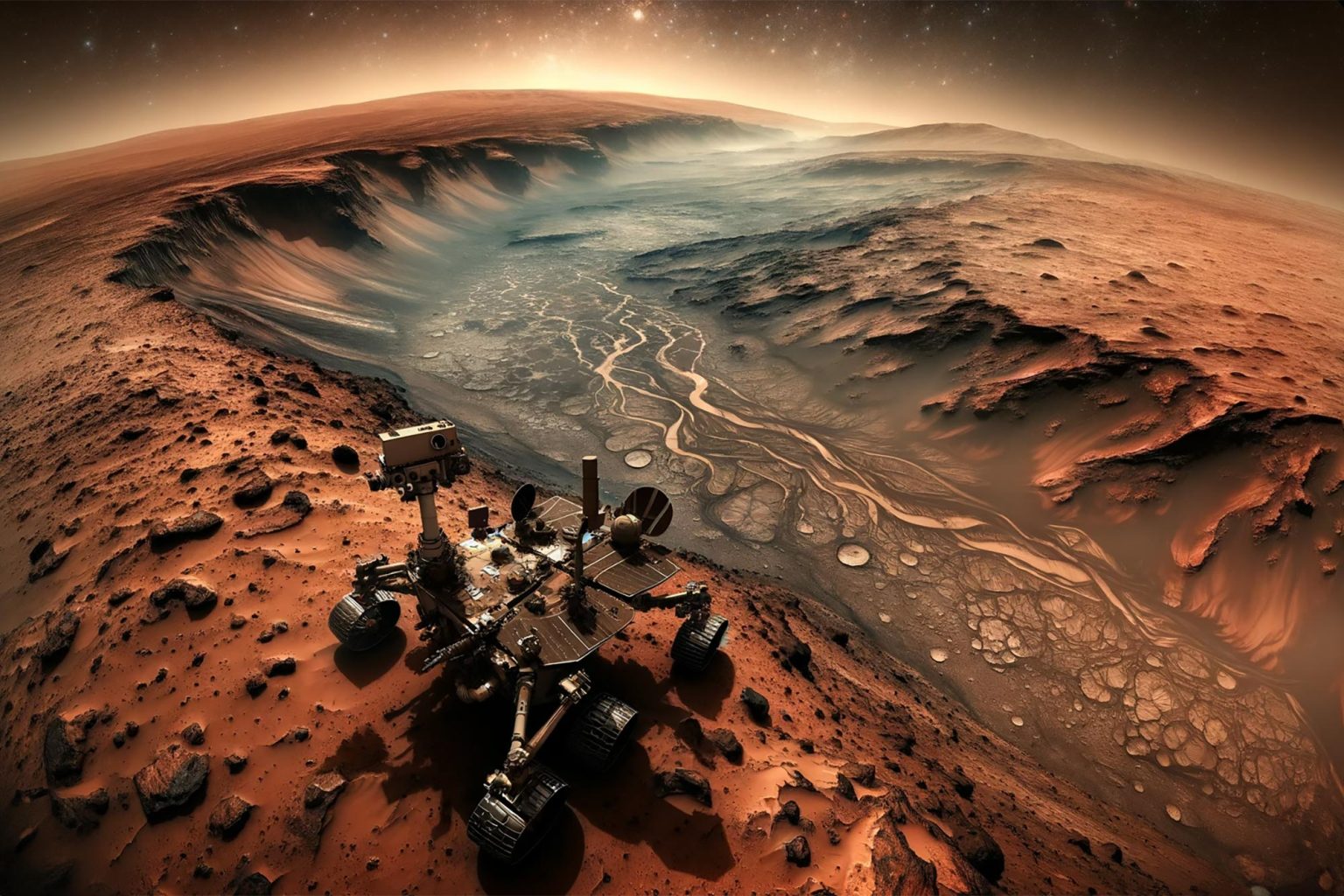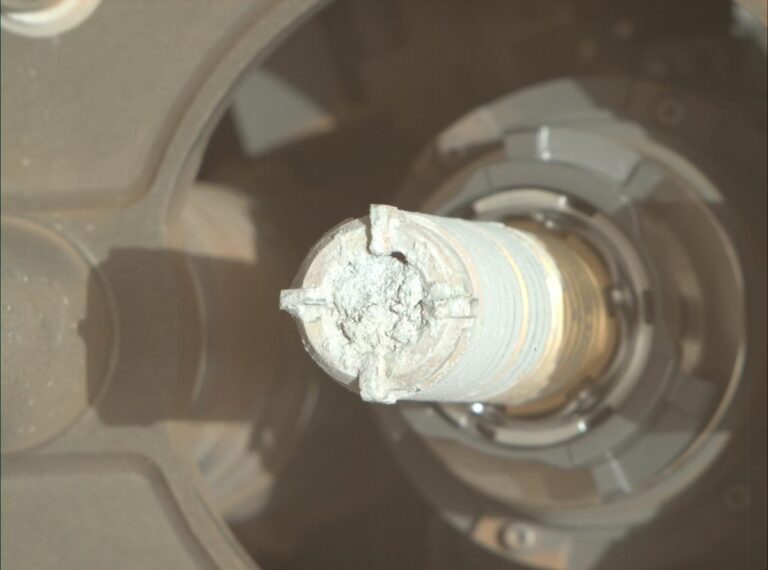Introduction
In a groundbreaking discovery, NASA’s Mars rover has uncovered a peculiar Martian stone that may hold clues to extraterrestrial life. Scientists analyzing data from the rover’s instruments have found unusual mineral compositions and organic molecules embedded within the rock. This finding has reignited discussions about the possibility of ancient microbial life on Mars and the planet’s potential to have once supported living organisms.
The Mysterious Martian Stone
The enigmatic rock, found in the Jezero Crater—a region believed to have once contained a vast lake—exhibits an unusual texture and chemical makeup. Initial spectroscopic analysis has revealed traces of complex organic compounds, which are often associated with biological processes on Earth. While not definitive proof of alien life, these findings suggest that Mars may have once harbored conditions favorable for microbial existence.
The stone also contains high concentrations of hydrated minerals, indicating that it was formed in the presence of water. Scientists believe that studying these minerals can provide valuable insights into Mars’ climate history and the duration of its wet conditions.
Potential Implications for Extraterrestrial Life
The presence of organic molecules and water-related minerals in the Martian stone raises several intriguing questions:
Did Mars once support microbial life? The discovery strengthens the hypothesis that Mars had a habitable environment billions of years ago.
Could these organic compounds have extraterrestrial origins? Some researchers speculate that they may have been delivered by meteorites or formed through unknown geochemical processes.
What does this mean for future Mars missions? The findings underscore the need for sample-return missions and further exploration to analyze these rocks in greater detail on Earth.
Scientific Reactions and Next Steps
Scientists worldwide are both excited and cautious about the discovery. While organic molecules are critical building blocks of life, they can also form through non-biological means. Researchers emphasize the importance of additional tests to determine whether the compounds in the Martian stone have biological origins.
NASA and the European Space Agency (ESA) are planning upcoming missions that will bring Martian samples back to Earth for deeper analysis. If conclusive evidence of past life is found, it would be one of the most significant discoveries in human history, altering our understanding of life’s existence beyond Earth.
Conclusion
The discovery of a strange Martian stone containing organic compounds and water-related minerals is a major milestone in the search for extraterrestrial life. While definitive proof of life remains elusive, these findings pave the way for further investigations into Mars’ ancient past. As technology advances and new missions are launched, humanity moves closer to answering one of its oldest and most profound questions: Are we alone in the universe?

















+ There are no comments
Add yours